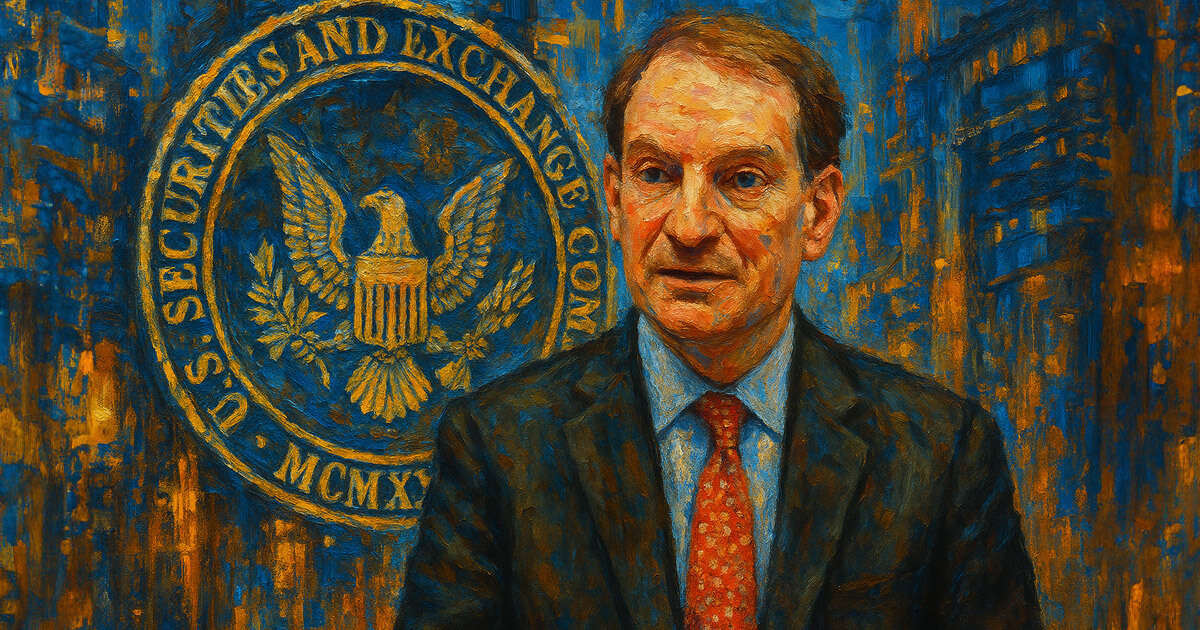The United States Senate confirmed Paul Atkins as Chair of the Securities and Exchange Commission (SEC) in a 52-44 vote on April 9.
The decision, supported entirely by Senate Republicans, initiates a departure from the enforcement-led regulatory approach under former Chair Gary Gensler.
Atkins, a former SEC Commissioner and longtime Wall Street consultant, is positioned to recalibrate the agency’s relationship with digital assets.
Background and confirmation
Atkins’ nomination advanced through the Senate Banking Committee in early April. Once sworn in, he will serve the remainder of the current term through June 2026, succeeding Acting Chair Mark Uyeda, who has overseen the Commission since Gensler’s resignation in January.
Uyeda’s short tenure already introduced deregulatory steps, including the dismissal of several ongoing crypto-related enforcement cases and the repeal of SAB 121, an internal rule that constrained crypto custody by public companies.
Atkins served on the SEC from 2002 to 2008 and has since led Patomak Global Partners, a consultancy that advises financial and digital asset firms on compliance and risk strategy.
He also led the Token Alliance, a crypto advocacy group. Ethics filings show Atkins and his spouse possess up to $6 million in crypto-related assets.
Regulatory orientation and philosophical differences
Atkins’ confirmation signals a philosophical reversal from Gensler’s tenure. While Gensler advanced over 100 crypto-related enforcement actions and repeatedly framed the space as speculative and noncompliant, Atkins has advocated for a codified regulatory structure that supports digital asset innovation while maintaining investor protections through a principles-based lens.
During his confirmation hearing, Atkins emphasized the need for a rational and coherent framework to address digital assets. He expressed intent to coordinate with the CFTC and Congress to address gaps in jurisdiction and rulemaking. His approach aligns with broader priorities under the Trump administration to position the US as a global hub for Bitcoin and blockchain-driven finance.
In contrast, Gensler maintained that most tokens fell under existing securities laws and pushed for enforcement-first oversight.
Although he acknowledged that Bitcoin was not a security and oversaw the approval of futures-based Bitcoin ETFs, he remained skeptical of the broader ecosystem, warning that many projects operated more like venture capital experiments than sustainable products.
Crypto policy trajectory
Atkins inherits a Commission already undergoing transition. Under Uyeda, the SEC began reducing its regulatory pressure on the digital asset sector. Notably, internal guidance was issued to exclude several crypto asset classes from securities classification, and an internal task force was assembled to engage with industry stakeholders.
These preliminary efforts foreshadow Atkins’ expected direction. The crypto community anticipates a rapid move to codify policy changes, accelerate ETF approvals, and formalize the distinction between decentralized and centralized digital assets. The leadership shift is a structural inflection point, potentially reshaping how capital markets interact with tokenized instruments.
Proposals are already circulating that could establish safe harbor provisions for decentralized protocols and streamline compliance pathways. Several pending ETF applications for tokens like XRP and Solana, previously stalled, may now find a more receptive audience.
Broader implications
Atkins’ deregulatory orientation also extends to traditional markets. He has voiced support for reducing disclosure burdens and simplifying capital formation rules for private companies.
During the confirmation process, he indicated an openness to revisiting accredited investor definitions, suggesting that financial sophistication, rather than net worth alone, should determine access to private markets.
Senate Banking Committee Chair Tim Scott stated that Atkins’ appointment would bring “regulatory clarity for digital assets,” while Acting Chair Uyeda and two other Commissioners issued a statement welcoming his return to the agency. Meanwhile, Senator Elizabeth Warren criticized his Wall Street ties and pointed to his advisory connection with FTX as disqualifying, per The Wall Street Journal.
The SEC, already subject to staff reductions under broader federal downsizing initiatives, now faces pressure to reorient its regulatory playbook. Atkins will need to manage institutional continuity while executing an agenda that redefines crypto oversight, restructures enforcement priorities, and potentially reopens dialogues around self-regulatory organizations for digital markets.





